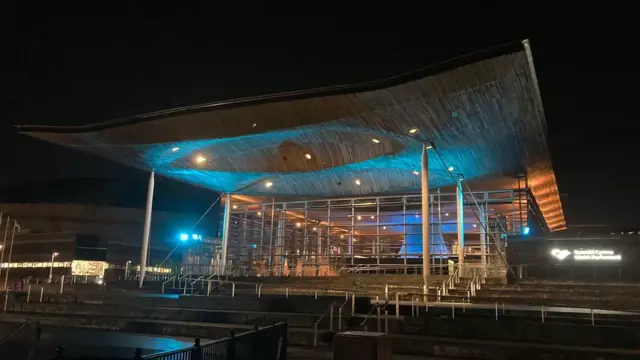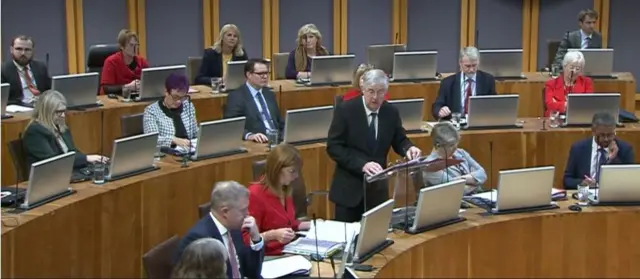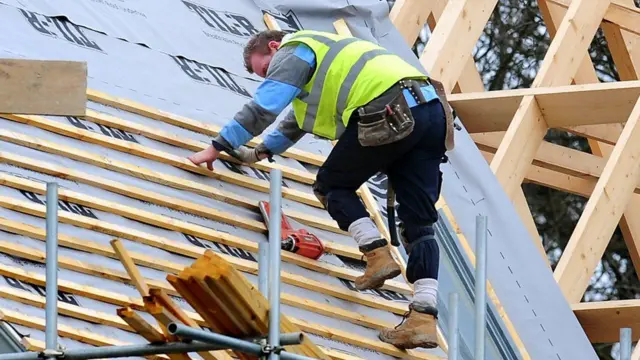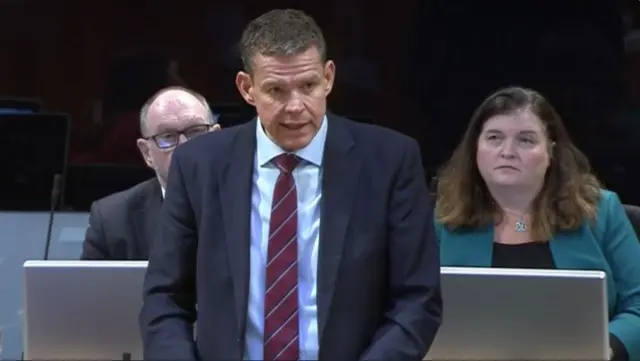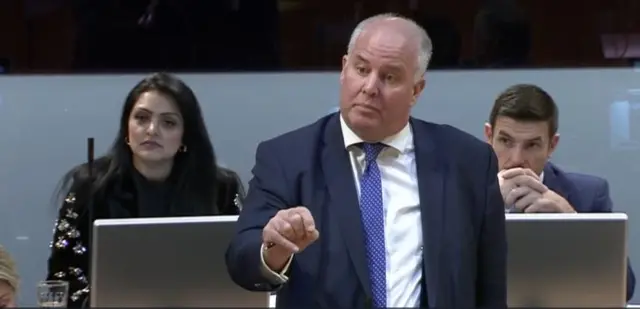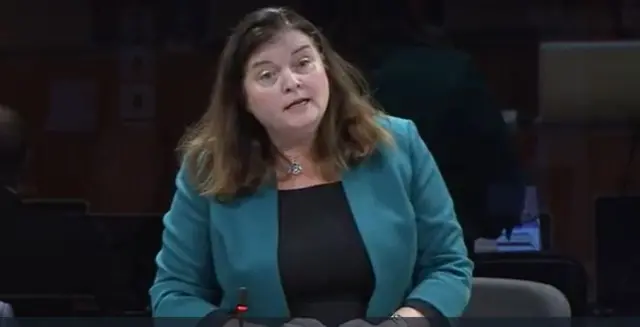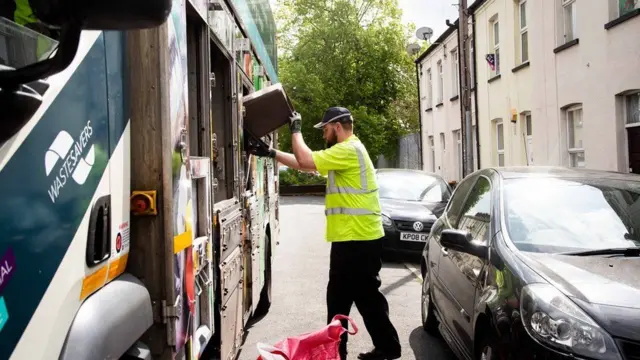Hwyl fawrpublished at 14:34 BST 17 October 2023
The twenty-eighth FMQs of 2023 comes to a close.
Thanks for following - join us again next week.
Because of the Israel-Gaza crisis, the lights in the Senedd continue to be dimmed each evening.
Llywydd Elin Jones says it is “to reflect the sentiment that such attacks represent another dark moment for humanity in the Middle East. It is a source of great sorrow for a democratic institution such as ours. As well as reflecting the sorrow, the darkness will also represent a statement of solidarity with all those suffering as a result of the attacks.”
